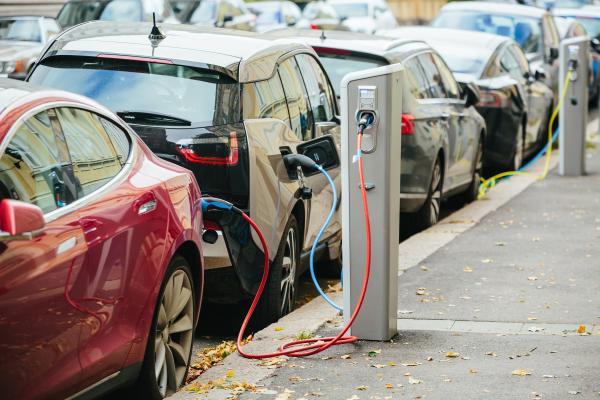
According to the Society of Motor Manufacturers, figures for new car registrations in 2022 show that electric motors are now the second most popular method of propulsion for new cars after petrol engines. In 2022, electric cars made up 16.6% of new registrations – and 32.9% of new registrations in December alone.
We have previously looked at some of the tax benefits available when employers provide their employees with electric company cars, instead of traditional petrol or diesel powered vehicles. In his Autumn Statement last year, the Chancellor made a number of announcements which will give employers looking to make the switch more certainty over their future tax position.
Benefit in kind rates
One of the major benefits of using an electric company car is the substantially reduced benefit in kind cost.
Broadly, the benefit in kind value (on which the employer pays 13.8% employers national insurance and the employee pays income tax and national insurance) is calculated as a percentage of the list price of the car plus battery. That percentage is currently a very generous 2% for 2022/23 – meaning the annual tax costs of an electric car are substantially less than an equivalent petrol or diesel and less than any hybrid car.
The Government have now confirmed that the 2022/23 rate will be held until 2024/25, after which it will increase by 1% a year to 5% by 2027/28. The overall picture for the coming years is therefore as follows:
Tax year |
Electric car benefit in kind multiplier |
2022/23 |
2% |
2023/24 |
2% |
2024/25 |
2% |
2025/26 |
3% |
2026/27 |
4% |
2027/28 |
5% |
Installing electric charging equipment
Employers who install electric charging equipment are currently able to claim 100% First Year Allowances for capital allowance purposes. This means that tax relief for the cost of installing equipment can be claimed in full in the year of purchase, even if the business has used up its Annual Investment Allowance on other asset purchases. This specific relief was due to end in a couple of months, but the Government have confirmed that they will be legislating in the Spring 2023 Finance Bill to extend First Year Allowances on charging equipment to 31 March 2025 for corporation tax purposes and 5 April 2025 for income tax purposes. This is intended to incentivise business investment in charging infrastructure.
Reimbursing charging costs for company electric cars
In addition to the changes above, from 1 December 2022, the advisory electric rate for employers reimbursing business miles in electric company cars increased from 5p a mile to 8p, to (at least partially) reflect the substantial increase in electricity costs.
Vehicle Excise Duty (Road Tax)
At the Budget there was also some less good - if perhaps not surprising given the shift to electric vehicles – news regarding Vehicle Excise Duty (VED). Currently electric cars are exempt from VED, but this will come to an end on 1 April 2025.
New zero emission cars (and those emitting under 50g/km) registered on or after 1 April 2025 and costing less than £40,000 will pay £10 VED in the first year, and £165 a year thereafter. Newly registered electric cars costing over £40,000 will pay higher rates as electric cars will no longer be exempted from the expensive car supplement.
Zero emission cars first registered between 1 April 2017 and 31 March 2025 will move straight to the standard rate of £165 from 1 April 2025.
Zero emission cars first registered between 1 March 2007 and 31 March 2017 will pay £20/year from 1 April 2025.
This article reflects the position at the date of publication (23 January 2023). If you are reading this at a later date you are advised to check that that position has not changed in the time since.















